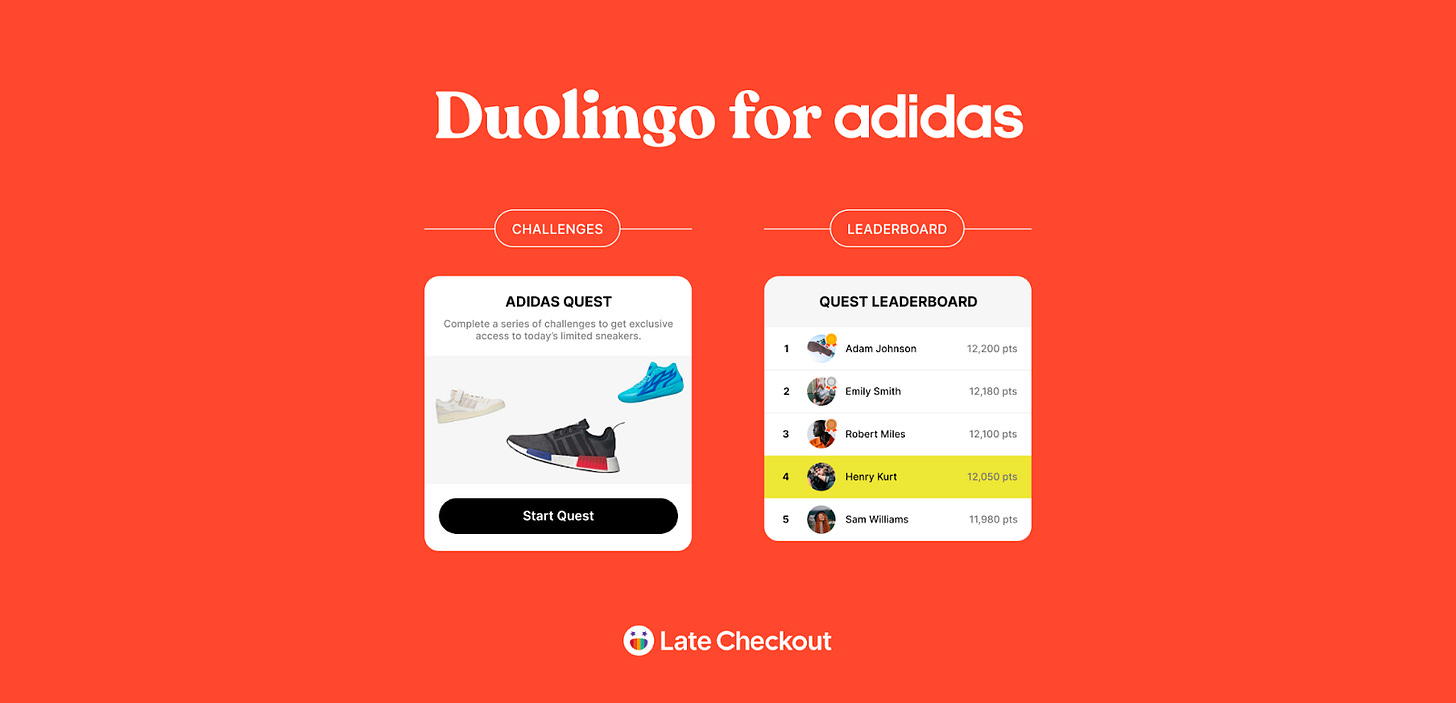The App Store is becoming the Game Store
New podcast episode is out today with Brent Beshore. He shares his secrets to buying micro-equity businesses and how to become a solid capital allocator. It’s something I’m trying to get better at as I acquire more community-based businesses in 2023.
I learned a lot and you might too.
Listen —> Apple, Spotify and YouTube. And if you’re seeing this, please subscribe to my YouTube, where I drop some extra content sometimes.
Enjoy.
Yesterday was an emotional day. I almost messed up my Duolingo streak on day #135 of learning to speak Spanish and that would have been tragic.
I went from someone who was totally unmotivated to learn a new language to someone who almost crashed his car practicing Duolingo while driving in order to keep his streak up. Crisis averted!
The lesson for product builders: if you could make your product feel like a game, you could make elephants run.
Today, I’m going to talk about why Duolingo is a game, how we’re witnessing the gamification of the App Store and what that means for you.
No matter if you’re a hardcore gamer like I was as a kid (see below 😅) or not, all human beings play some form of games. Going for a run is a game, cooking pasta is a game and climbing the corporate ladder is definitely a game.
We’re wired to game. That’s why when products enable us to be gamers, we thrive.
While Duolingo at the surface looks like a language app, at the core it is very much a game. And a highly lucrative one. Duolingo generated $415M in revenue in 2022 and has been cash flow positive since IPO in 2021.
Let’s breakdown what mechanics Duolingo uses to be game-like:
Scores: A real-time pulse as to how you’re doing
Leaderboards: A multiplayer weekly league where you can compete with other language learners or friends. Note: I’ve written about single-player vs multiplayer in the past here
Achievements: Your trophy case for completing streaks, learning new words etc.
In-app currency: An economy that allows you to participate in different leagues and buy products
Levels: Creates a sense of status within the Duolingo world
Challenges: You need to do your challenges, because Susan has 150 more XP than you right now — and you can’t let her win
Streaks: A ritual that brings you back everyday (and makes you enable push notifications)
Sounds: Every core action comes with a sound. You feel like you’re playing a slot machine
Characters: The teachers in Duolingo are a set of fun animated characters. It makes you feel like you’re in another world
The cool thing is this thinking about what would the internet look like if it was more game-like?
Think of a popular Shopify store that sells limited edition t-shirts. Instead of simply selling to the first 50 people who show up on the site for the drop, could an apparel company put their community through a series of rigorous challenges — giving purchase access only to those dedicated enough to complete the quest?
Buying that shirt becomes a no-brainer. The ability to purchase becomes a status symbol. If you’ve done the work to get that shirt, and other people in the community know it — your perceived value goes up.
Now imagine Adidas doing this with their most coveted sneakers.
Madness.
Framework for creating game-like experiences
This is the framework Late Checkout uses when building game-like products and I want to share it with you.
Pick a growing underserved niche/lifestyle (ex: keto diet)
Pick an outcome/goal that is difficult to achieve (ex: learning and staying on keto)
Pick the set of content you want delivered (ex: educational content and reminders)
Deliver your content wrapped in a game (ex: challenges, quests, multi-player, community etc)
Challenge for you: How can you use this framework to create a new product in a new niche that can reach Duolingo-like success?
I believe more and more companies are going to adopt and attach game-like mechanics to their experiences. It’s where the world is going.
The next major app is more likely to feel more like Duolingo than it will the New York Times.
The App Store is becoming the Game Store.
Be well,
Greg Isenberg
P.S: If you need exceptional product design, branding and engineering talent to build you products like Duolingo, hire our agency Late Checkout.
We work with 1 new company per month (and most companies you love). Email me at greg.isenberg@latecheckout.studio
—
If this post gave you an ounce of value:
Subscribe to the YouTube channel for more exclusive content in 2023
Share this post because your followers might enjoy it






This is big time. We're building a wallet with gamification at its core. This post and the example of Duolingo is very helpful in helping us think through the many layers of gamification. Appreciate you sharing Late Checkouts framework 🙌